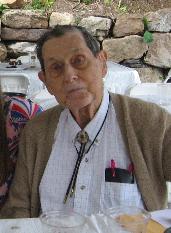This is mark Joseph “young” blog entry #64, on the subject of Versers Gather.
This is about the creation of my book Verse Three, Chapter One: The First Multiverser Novel, now being posted to the web site in serialized form. This “behind the writings” look definitely contains spoilers, so you might want to read the referenced chapters before reading this look at them. That link will take you to the table of contents for the book; links below (the section headings) will take you to the specific individual chapters, and there are (or will soon be) links on those pages to bring you back hopefully to the same point here. There were also numerous similar previous mark Joseph “young” web log posts:
- #18: A Novel Comic Milestone (which provided this kind of insight into the first six chapters),
- #20: Becoming Novel (covering chapters seven through twelve),
- #22: Getting Into Characters (for chapters thirteen through eighteen),
- #25: Novel Changes (chapters 19 through 24),
- #27: A Novel Continuation (chapters 25 through 30),
- #30: Novel Directions (chapters 31 through 36),
- #33: Novel Struggles (chapters 37 through 42),
- #35: Quiet on the Novel Front (chapters 43 through 48),
- #37: Character Diversity (chapters 49 through 56),
- #39: Character Futures (chapters 57 through 60),
- #43: Novel Worlds (chapters 61 through 66),
- #47: Character Routines (chapters 67 through 72),
- #50: Stories Progress (chapters 73 through 78),
- #53: Character Battles (chapters 79 through 84),
- #55: Stories Winding Down (chapters 85 through 90),
- #57: Multiverse Variety (chapters 91 through 96),
- #59: Verser Lives and Deaths (chapters 97 through 102), and
- #61: World Transitions (chapters 103 through 108).
This picks up from there. These chapters have all three main characters coming together.
There is some essential background to the book as a whole in that first post, which I will not repeat here.
Quick links to discussions in this page:
Chapter 109, Slade 36
Chapter 110, Hastings 38
Chapter 111, Slade 37
Chapter 112, Kondor 37
Chapter 113, Hastings 39
Chapter 114, Slade 38
With Joe and Lauren in the same world, their story had slowed significantly; I thus skipped Joe this time and came back to Bob to keep the story moving.
I really like the imagery of Slade’s action hero movement here. He is holding his blaster in his right hand, but he has to cross-draw his sword from that side, so he tosses the blaster in the air and catches it with his left hand while simultaneously drawing the sword with his now free right hand and striking the enemy. I don’t think it’s that tough a trick, really, as I often toss my keys in the air with one hand and catch them with the other while transferring whatever was in the other hand to the first hand, for any of several reasons (usually to have my keys in the other hand, since I need them to the right to start the car but keep them in my left pocket). Holstering the blaster wrong-handed is more difficult, but not impossible if given a moment, and he gives himself the moment by terrorizing them.
The distinction between ranged and close combat was needed to explain how Slade could defeat thirty trained guards; the emotive violence would also be a factor. The notion that blaster-wielding troops would be incommoded by close combat doesn’t seem that alien.
I also like the chaotic impression of not being able to tell which soldiers are trying to fight and which looking for an escape route.
Somehow my editor didn’t get that Ishara drew his blaster to shoot at the person shooting at Slade, and felt I had left unanswered the question of why Ishara suddenly shot Slade. I don’t remember what I changed, but I hope that the version that went to print is clear that Ishara did not shoot Slade, one of the Federation guards did.
There was a typo in the printed version. In the last paragraph a sentence begins “But abruptly, and he dropped it….” I corrected it for the online version to “Abruptly he dropped it….” I am not certain what the original was supposed to say.
I realized as I said that Joe took to tending the sick parakeets that I had not previously mentioned them, but it was simple enough to suggest that sick birds stayed out of sight.
This is my first mention of “the journey”. Lauren never worked out what that meant, but my editor did. I don’t know whether he was smart or Lauren was stupid; I don’t know whether other readers realize what it means before the reveal.
This was one of the theological discussions that enabled me to put forward ideas about life and heaven. I tried to keep them “fair”—neither Lauren nor Joe generally won, although when Bob was added that created more complications, because he brought a different viewpoint to it.
The argument this time was to show that they still disagreed even though they were becoming friends, to explore some of the ideas about time, give a bit more backstory to Scriff–and to give Slade a stage on which to enter.
The new voice is, of course, Bob Slade. I did not want it to be too obvious that he was arriving to join them, although my editor seemed to think that once the two of them were together it was pretty obvious that the third was going to arrive at any moment. I was so irked by that problem that in the next book I made a point of bringing two characters together early and then separating them before bringing all three together in a different world.
Having brought Slade onto the stage, I needed to fill in the gaps before the story escaped him. Mostly, though, this was just an attempt to create the feeling of meeting them for the first time, and I wanted it to have the natural feel you get when you’re in a foreign country and meet someone from home.
I specifically had Bob ignore the fact that Joe is black. It is Joe’s self-perception of his blackness that is his racism problem. Neither Lauren nor Bob ever take note of it unless he mentions it.
This chapter let me fill in the gap from Bob’s departure from Destiny to his appearance here in the valley. I placed him at a greater distance from the others to start, but in something of the same direction, and said he took two days to make the trip afoot.
There is something about their common experience that draws them together despite their differences. There’s also the fact that for this first “gather” I put them in a world in which they are the only humans, so they naturally would have more in common with each other than with the birdmen of the world.
This is a peculiar chapter, because it is told from Joe’s perspective but focuses on a conversation between Lauren and Bob which continues for quite a while before Joe is drawn into it. It thus gives the naturalist’s observations of arguments between supernaturalists.
Bob is completely different from Joe. Joe is a trained soldier who prefers to be involved in healing, Bob a trained repairman who views himself a fighter. Joe is serious about everything he does, Bob is not serious even about the things that most matter to him. They have very little to connect them.
Bob has fair reason to think that there should be a fight. He was killed in NagaWorld by artillery while stripping parts off a war machine. In the Djinni Quest, he had to face efreet, and learned of his own inadequacy which he spent decades remedying. On Destiny, he was part of a rebel pirate crew, and he was one of the key combatants. Whether there actually was a plan for him to be a fighter or whether he is simply reading the events to fit his expectations, the evidence supports his belief. Thus his incredulity that there would not be any use for his fighting skills here—and his ultimate validation when there is.
I don’t know what’s available in terms of Norse scriptures either, but in recent years there seems to be a growing number of what might be called fad pagans. They’ve learned about pagan religions from various sources, and knowing almost nothing about these have decided to declare themselves devotees of these faiths. Connecting Slade’s beliefs to a series of fantasy novels fit well with who he was. My knowledge of Norse religion is all second-hand from multiple sources, and so Lauren’s and Bob’s also are all second-hand—but from different sources. Thus Lauren surprises him with the notion that the giants beat the gods in the end.
The C. S. Lewis quote is one I read decades ago; I could not tell you in which book he wrote it. I have since heard that J. R. R. Tolkien opined that Lewis romanticized Norse religion.
Years after the book was published, and even well after I had finished the third novel (in which Slade begins learning a few things about his faith) a reader from Finland opined that he hoped in the future I would draw more from the Eddas, and give Bob’s religion more real substance. I have not done so. That’s partly because the point is that Bob does not know much about such things—as with magic, he is not really all that interested in the details, and his interest in all things intellectual is shallow at best. It’s also because I wanted room to play with what Bob believed, and to create things that fit my story needs. I make no claims that anything Bob believes is genuinely Norse religion, and I make that clear up front with his source: a series of fantasy adventure novels.
The Viking Raiders series and their author James Thompson are completely fictional inventions of mine. It is perhaps ironic that I have since met someone named James Thompson who is very into fantasy (mostly Star Wars and Harry Potter, I think), but I did not know him then.
The outbreak when Lauren finds it incredible that Bob got his religion from a set of fantasy adventure books draws Joe into the argument. He expresses the populist view that the Bible is a collection of myths and legends, against Lauren’s educated view that it is collected history.
Joe’s argument is the typical circular argument that because we have no proof of anything magical or supernatural, we can discount any claims that there is such proof. Of course, this puts him against both of the other disputants, each of whom is certain that he has encountered the supernatural personally.
Lauren quite rightly accepts that Bob’s magic is as real as hers, and that in the question of whether or not there is a supernatural, Pagans and Christians are allies against naturalists and atheists. She might be leery of the source of Bob’s powers, but she’s much more concerned about the denial of any such powers than about the specifics of the source in this discussion.
Joe moves to the typical argument that there are scientific explanations we don’t yet know, and that he can accept mental/psionic powers which might be confused for magic. Lauren is ready with an answer, specifically because she is familiar with both and knows them to be different.
This of course spilled over into the argument about religion, dragging Kondor into it. The challenge at this point was to keep everyone credible and in character, and find a way out of the argument without anyone conceding anything.
Having Joe tell the story of the debate enabled me to end it unfinished. Whatever Lauren and Bob said after this probably wasn’t even on subject anymore. Joe has in essence lost the debate without surrendering his position: he knows he can’t win, so he stops trying.
I had some notion in mind that the parakeets spent the summers here, but was only hinting it. My editor thought it incredibly obvious, and thought Lauren really should have realized it sooner, but I’m not convinced even now. They were not interested in nest construction or maintenance at this point because they were leaving soon.
I knew the action was going to have to resume soon; this was a calm before the storm, and although I was still working out the details of the storm, the calm needed to draw to an end. Thus Lauren returned to her practice.
The idea that Lauren has been lulled into relaxing and that Bob’s diligence shocks her back to practice seemed sensible. After all, she’s been thinking that the reason she is here is to help create the basics of civilization, and now she has two companions—one always dressed in the garb of a soldier, the other constantly practicing his combat skills. If her theory is correct, there must be a need for fighters in whatever is to come, and she needs to put herself back on track for that.
Bob’s practice includes changing the power cell in the weapon because he noticed previously that that was a time-consuming part of fighting, and it would be to his advantage to recognize when he was firing his last shot and to be able to change the power cell quickly.
There are more hints of what is to come in this chapter, but not of the part that matters to the story. In a sense, the journey is a distraction: it will come, and it will change the situation, but while the reader is expecting that something entirely different is coming that the reader is not expecting.
The statement at the end of this chapter that Lauren would soon be ready sets up her next chapter, where she realizes she is not.
From the first chapters, it had always been assumed that all three characters had started in NagaWorld; but because that world is used as the starting point for players and is supposed to be a mystery to be explored, I tried to keep the amount of detail about it in the book limited. But at this moment, it seemed sensible to bring out that they were all in that world originally, because it supported the view that they were connected, and that would help the story move forward.
Bob spent years in the relatively quiet position of lord of a castle, but most recently had been in the rather action-packed adventures of a rebel space pirate. The quiet of the parakeet meadow is a bit of a come-down from that.
In a later book, Lauren and Bob communicate briefly in parakeet, merely because they can. It becomes a shared experience. He never becomes particularly fluent in it, though.
It struck me that one aspect of the religion of Odin, as I understood it, was that it valued strong fighters and did not value much else. Thus for Bob the docile and relatively weak parakeet people were not candidates for his religion, and he didn’t care what they chose to believe. That also suggests that the gods of this particular faith don’t care about people except in relation to what they are able to do. Lauren’s faith is entirely different from that.
Lauren broaches the notion that there can be a scientific explanation for how something happens that does not negate the theological purpose of why it happens. Joe challenges that, thinking that either God did it or science did it, and if there is a materialist scientific explanation for how something happened, asking why is redundant.
I liked the idea of the odds of drawing the two of spades from a pinochle deck (which, of course, has no such card) well enough to use it again, this time to have Joe say it in response to the question of the probability that they would all land in the same world at the same time twice. It reflected the growing impression Kondor had that random chance could not account for his experiences. He would of course seek scientific explanations; but he was starting to move away from pure coincidence as an explanation for it all.
Interest in these “behind the writings” continues, so I’m still thinking they’re worth producing. Feedback is always welcome, of course. Your Patreon support is also needed to maintain this.
[contact-form subject='[mark Joseph %26quot;young%26quot;’][contact-field label=’Name’ type=’name’ required=’1’/][contact-field label=’Email’ type=’email’ required=’1’/][contact-field label=’Website’ type=’url’/][contact-field label=’Comment: Note that this form will contact the author by e-mail; to post comments to the article, see below.’ type=’textarea’ required=’1’/][/contact-form]









